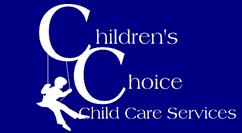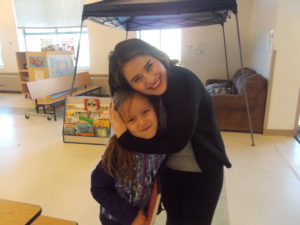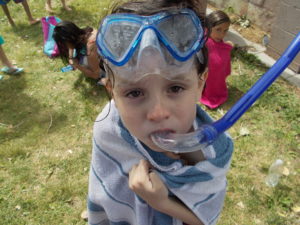We are happy to welcome you and your child into our Children’s Choice family.
If you have questions, please call us at
(505) 296-2880.
Register for Children’s Choice
Enroll for Quality Care!
Parent Manual
Click for Parent Manual
Need Help Paying for Child Care?
We accept ECECD Contracts for Financial Assistance. Call 505-841-4800 and ask for Child Care Assistance.
Activities: What do Children’s Choice kids get to do?
We offer a variety of activities for children to CHOOSE from that are fun and educational.
There are a mix of child-directed activities, staff-facilitated activities, clubs, enrichment classes, field trips, presentations, special events, and snacks.
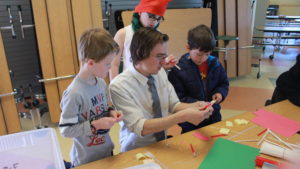
Child-Directed Activities
- Children can CHOOSE from a variety of child-directed activities - open-ended activities that require little or no help from adults. Each day the activity area is transformed into a model environment that provokes interest and curiosity through child-directed interest centers:
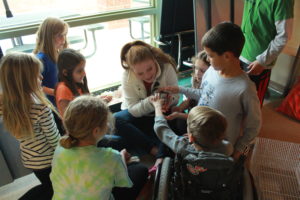
- a quiet home-like area - for relaxing, chatting, or doing home work.
- a construction zone/building area – for exploring physics, design, and working with friends using materials like blocks, Legos, k-nex, bristle blocks, marble tracks, etc.
- an art area – for exploring materials and creating artsy arts and crafty crafts using materials like playdough, markers, stencils, stamps, glue, beads, etc.
- a dramatic play area – for role playing, creative expression, and exploring the perspectives of others using materials like props from a restaurant, hair salon, construction, grocery story, fire house, etc.
- a science and math area – for exploring geography, physics, and biology using materials like globes, teaching clocks, measuring devices, magnification, anatomy models, animals organized by habit, etc.
- a strategy games area – for exploring strategy, decision making, and for social development using materials like dice, card, and board games for all age levels.
- a snack area – for socialization and nourishment, providing multiple food CHOICES and always self serve, family-style, and all you care to eat.
Environment Set Up
Staff-Facilitated Activities:
As if that wasn't enough, we plan a variety of staff-facilitated activities to CHOOSE from - activities which require adults to help lead the club. Some examples of staff-facilitated activities are active games, team sports such as soccer or softball, other activities such as a cooking or sewing project, or a more complex art project.
Clubs:
Clubs are special-interest groups that children may CHOOSE to join which require significant teacher facilitation. Some examples of club themes are science, drama, journalism, fitness, Spanish, cooking and the environment.
Experiences
Field-Trips:
On many non-school or early release days, our kids will go on field trips. We visit parks, businesses, outdoor recreation areas, swimming pool, and museums. We go bowling, roller-skating, and even ice blocking!
Snacks:
Kids get snacks, which consists of at least two nutritious food CHOICES, with water, 100% juice, or milk. It's family-style, so children choose the type of snack they want and how much. We're not called Children's CHOICE for nothing.
We wrote the book on afterschool. Literally.
Many of the philosophies of Children's Choice in regards to intentionally programming of after-school activities are articulated in the book, Best Practices: Guidelines for School-Age Programs, and the Best Practices Workbook, 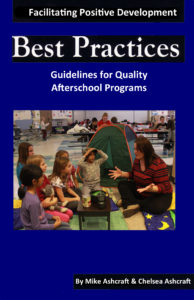 by Mike Ashcraft, Co-Founder
by Mike Ashcraft, Co-Founder
of Children's Choice.
Curriculum Statement:
 Intentionality is the key to programming. Quality school-age care programming provides balance in a child’s life – balance between work and play; rituals and novelty; choice and community building. Constructive pedagogy teaches how important active, hands-on experiences are in the learning process, so we use many resources to ensure the program focuses on the positive development of the whole child, integrating strategies for physical, intellectual, emotional and social development.
Intentionality is the key to programming. Quality school-age care programming provides balance in a child’s life – balance between work and play; rituals and novelty; choice and community building. Constructive pedagogy teaches how important active, hands-on experiences are in the learning process, so we use many resources to ensure the program focuses on the positive development of the whole child, integrating strategies for physical, intellectual, emotional and social development.
The activities are but one component of intentional programming that we consider. We provide a developmentally appropriate routine that is consistent and stable yet flexible, a routine that allows for the individual developmental needs of school-age children. Every child has unique needs.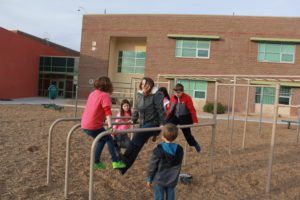
Some kids need to relax quietly right after school, some need a snack, some kids need to run off some energy, and some need to talk to their friends. Our routine allows kids to make these choices and explore and experiment with many other child-directed activities when the school bell rings. Children need some time to settle in before beginning the staff-directed activities that are integrated into the schedule.
It is important that children have the opportunity to develop and practice social skills during activities so most activities involve mixed-age groups and a lot of interaction and playfulness. Novelty in experiential learning is a key to brain development, so we provide a variety of experiences such as field trips, guest speakers, long- and short-term projects, and enrichment clubs.
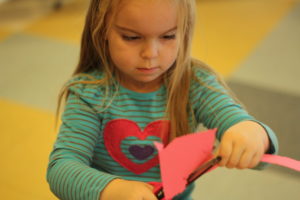 The curriculum focuses on a variety of skills through the implementation of enrichment clubs and classes that may emphasize art, math, science, theater, physical education, music, journalism, the environment or public service.
The curriculum focuses on a variety of skills through the implementation of enrichment clubs and classes that may emphasize art, math, science, theater, physical education, music, journalism, the environment or public service.
Through these enrichment clubs and classes, we teach life skills such as cooking, earning/saving money, wise consumerism, health, nutrition, and safety; as well as social competencies such as problem solving, decision-making, negative peer pressure resistance skills, conflict resolution skills, friendship skills, and comfort with people of different backgrounds.
Download the Parent Manual.
